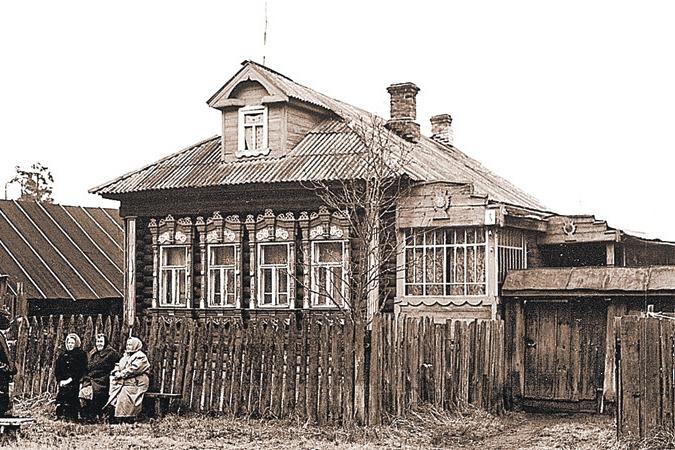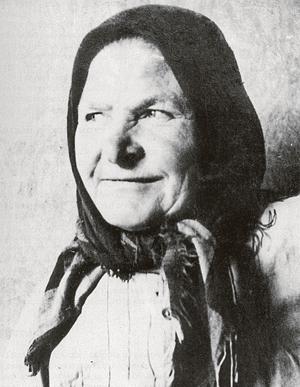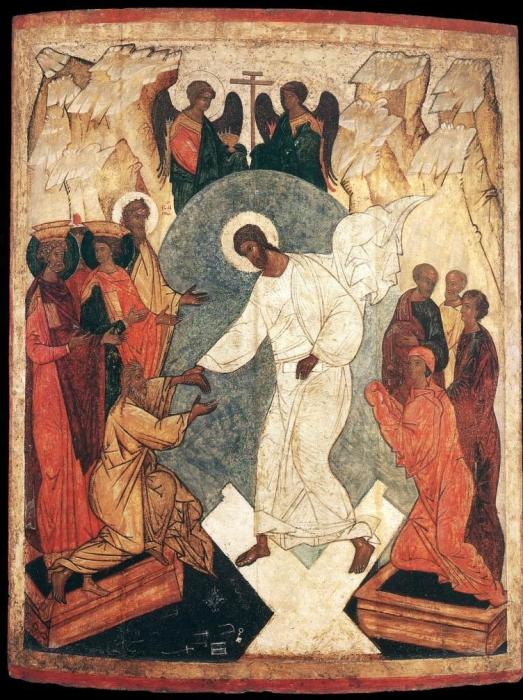The work of the Russian Soviet prose writer A. I. Solzhenitsyn is one of the most striking and significant pages of our literature.
His main merit to the readers is that the author made people think about their past, about the gloomy pages of history, told the cruel truth about many inhumane orders of the Soviet regime and revealed the origins of the spirituality of subsequent generations after the perestroika. The story "Matryonin Dvor" in this regard is most revealing.
History of creation and autobiographical motives
So, the story of creation and analysis. “Matrenin Dvor” refers to the stories, although in size it significantly exceeds the traditional framework of the mentioned literary genre. It was written in 1959, and printed - thanks to the efforts and troubles of Twardowski, the editor of the most progressive literary magazine “New World” at that time — in 1963. Four years of waiting is a very short time for a writer who spent time in camps stigmatized as “the enemy people ”and disgraced after the publication of“ One Day by Ivan Denisovich ”.
We continue the analysis. Progressive criticism considers Matrenin Dvor to be even stronger and more significant than One Day .... If in the story about the fate of the prisoner Shukhov, the reader was captivated by the novelty of the material, the courage to choose a topic and its presentation, revealing power, then the story about Matryona impresses with its amazing language, masterful possession of a living Russian word and the highest moral charge, pure spirituality with which the pages of the work are filled. Solzhenitsyn planned to name the story this way: “A village should not be without a righteous person”, so that the main theme and idea would be stated initially. But censorship would hardly have missed the title so shocking for Soviet atheistic ideology, because the writer inserted these words at the end of his work, entitled it by the name of the heroine. However, the story only benefited from the permutation.

What else is important to note when continuing with the analysis? “Matrenin Dvor” is referred to as the so-called village literature, rightly noting its fundamental importance for this direction in Russian verbal art. The author’s integrity and artistic veracity, firm moral stance and heightened conscience, the inability to compromise, as censors and market conditions demanded, became the reason for further silence of the story, on the one hand, and a vivid, living example for writers - contemporaries of Solzhenitsyn, on the other. The author’s position is most fully correlated with the theme of the work. And it could not have been otherwise, telling about the righteous Matryona, an elderly peasant woman from the village of Talnovo, who lives in the very “interior”, native Russian outback.

Solzhenitsyn was personally acquainted with the prototype of the heroine. In fact, he talks about himself - a former military man who spent a decade in the camps and in the settlement, immensely tired of the hardships and injustices of life and longing to rest his soul in the calm and uncomplicated provincial silence. And Matryona Vasilievna Grigoryeva is Matryona Zakharova from the village of Miltsevo, in whose hut Alexander Isaevich was filming a corner. And the life of Matryona from the story is a somewhat artistically generalized fate of a real simple Russian woman.
Theme and idea of the work
Whoever reads the story will not be hindered by analysis. "Matrenin Dvor" is a kind of parable about the disinterested woman, a woman of tremendous kindness and kindness. Her whole life is serving people. She worked on the collective farm for “work-sticks”, lost her health, and did not receive a pension. It’s difficult for her to travel to the city, to bother, and she doesn’t like complaining, crying, and even more so demanding something. But when the chairman of the collective farm demands to go to work on harvesting or weeding, no matter how bad Matrona feels, but still walked, helped the common cause. And if the neighbors asked me to dig potatoes, she also behaved. I never took pay for labor, rejoiced from the bottom of my heart a rich harvest and did not envy when my potato was small, like fodder.

Matrenin Dvor is an essay based on the author’s observations of a mysterious Russian soul. That is the soul of the heroine. Outwardly nondescript, living extremely poor, almost impoverished, she is unusually rich and beautiful in her inner world, her enlightenment. I never pursued wealth, and all its good is a goat, a gray laced cat, ficus in the upper room and cockroaches. Having no children, she raised and raised Kira - the daughter of a former groom. She gives her part of the hut, and during transportation, helping, perishes under the wheels of the train.
Analysis of the work "Matrenin Dvor" helps to reveal an interesting pattern. During life, people like Matryona Vasilyevna cause bewilderment, annoyance, condemnation in others and relatives. The same sisters of the heroine, “mourning” her, lament that there is nothing left after her of things or other wealth, they have nothing to profit from. But with her death, it seemed as if some light had gone out in the village, as if it had become darker, more boring, sadder. After all, Matryona was that righteous man on whom the world rests, and without which there is no village, no city, or the Earth itself.
Yes, Matryona is a weak old woman. But what will happen to us when such last guardians of humanity, spirituality, warmth and kindness disappear? This is what the writer offers us to think about ...